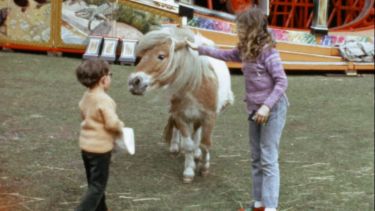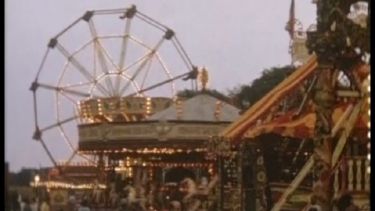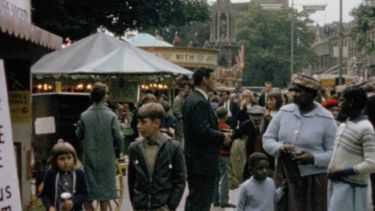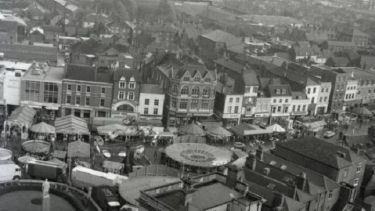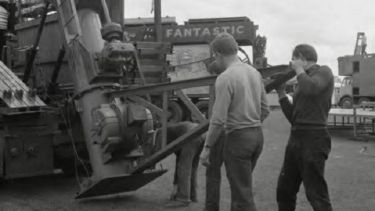Perceptions of the past are integral to a community’s sense of identity and understanding of its present.
From a young age, people consume ideas about the past, often construing them as fact, an indisputable truth, because history becomes institutionalised through the education system, an entity trusted with shaping the population’s minds and futures from childhood.
This means that history can be used as a powerful tool within society and those who write it have the means to mould popular understanding of events, which can serve to legitimise the past, past actions and present attitudes among other things
The last century has produced an abundance of ideologies that pretend to be keys to history but are actually nothing but desperate efforts to escape responsibility."
The Origins of Totalitarianism
Hannah Arendt
Popular understandings of the past have largely been constructed by professional historians.
As academic institutions have typically been accessible to a majority white, male, affluent demographic, professional interpretations of the past have been largely homogeneous and narrow in both perspective and focus, favouring the dominant section of the population in the detriment of others.
As Carl Lotus Becker argues in ‘The Heavenly City of the Eighteenth Century Philosophers’, ‘All historical writing, even the most honest, is unconsciously subjective, since every age is bound, in spite of itself, to make the dead perform whatever tricks it finds necessary for its own peace of mind’.
Therefore, the role of amateur historians is important as they challenge popular perceptions of the past by offering alternative viewpoints and histories to that of a professional historian.
The value of amateur history
Amateur history recordings serve to broaden the focus of traditional academic history by providing evidence of pieces of the past that may not have been accessible without them.
As people become more interested in alternative viewpoints of history and mainstream history stops being understood as truth and becomes increasingly contested, the role of amateur historians and their recordings is becoming more and more evident.
Considering this, it is easy to recognise the important role archives play as they probably hold the largest database in the existence of history recorded by non-academic actors.
Without amateur history recordings, histories that were not widely studied in the past would now be lost for those that wish to research them.
Therefore, the collections that these archives safeguard enrich our understanding of the past by showcasing aspects of it that would have otherwise been inaccessible.
Furthermore, as widely-consumed history has often been written by the dominant demographic, as explained above, with access to academic institutions, certain histories on the fringes of what is deemed ‘conventional’, ‘acceptable’, or ‘worthy of recording’, within society have become historically and unfairly marginalised.
As Mark Twain famously said: ‘The very ink with which history is written is merely fluid prejudice.’ A statement that in many cases has been proven to be true.
The histories of the non-dominant classes, cultures and subcultures are, however, undeniably intertwined with mainstream history and there is the legitimacy for them to be studied.
Yet, as a result of the homogeneous nature of the historical profession until recent decades, the past of communities that some have deemed ‘unconventional’ has been ignored or misrepresented by traditional history.
An example of this is the study of the past of travelling fairground communities. The National Fairground and Circus Archive (NFCA) does important work to collate amateur history that enables the study of their past that would otherwise have been lost.
If it was not for the work of amateur filmographers and specialist enthusiasts, minor details that have the potential to fill large gaps within the narrative of academic histories would remain inaccessible.
In this blog, we will look at the Vic King and David Braithwaite collections at the NFCA as an example of the impact of their work.
Vic King was an engineer from Oxford that developed a passion for the fairground after building rides in the 1920s for a short period of time.
His collection provides a valuable source of knowledge on fairground culture as he recorded details through film and photography.
His films capture a broad range of fairground activities, from performers to patrons, providing a unique insight on the workings of fairs and a wealth of social history across three decades of the twentieth century.
In addition, David Briathwaite was an architect fascinated with the fairground since childhood, who focused his free time on the study of fairground architecture.
Braithwaite produced thousands of images, which record the evolution of the British fairground and wrote ground-breaking architectural publications while also saving crucial pieces of the archive, which were discarded or overlooked by professional historians such as the history of the Orton and Spooner Company.
It is often the immersion of enthusiasts such as King and Braithwaite within the community that they are documenting that overtime causes their work to be so vital to professional historians.
The photographic material that they produced, for example, is primarily done so out of passion and interest, rather than out of historical need, thus offering a different perspective than academic scholars.
Enthusiasts also have more intimate access to the communities they are recording which gives them a different type of freedom compared to professional historians.
Normally, enthusiasts are producing materials for themselves rather than for an audience or peer review and approval, thus there are no preconceived requirements their work should fulfil.
Thus, amateur historians produce unique, non-conformist works of visual and intellectual history that have the potential to complete what we know about our past, documenting aspects of it that mainstream history ignores.
This means that they often provide original perspectives and inform academic history with sources that scholars would not normally have the opportunity to produce themselves.
While the materials that make up the collections at the NFCA are valuable pieces of history, this was not necessarily their intended purpose.
As I’ve said earlier, enthusiasts often create amateur history recordings out of interest and passion for a subject, however, what initially is merely a hobby without obvious historical consequence, can become a valuable historic document in the future and/or a key that unlocks a wealth of information and knowledge.
Amateur film and photography, such as the kind that King and Braithwaite produced can be used as a historical source, and have significant potential for persevering areas of the past not widely explored by academic historians.
They have a specific subject that is controlled, and candid at the same time. Therefore, due to the breadth of focus in the work of King and Braithwaite, a great deal can be gleaned from the details that they showcase.
The work of amateur historians is ostensibly an unintentional form of social history, it documents details such as the use of technology on the fairground, the roles of men and women within the community, fashion trends, demographics and so on and so forth.
There is a lot more that these history recordings are showcasing in addition to the intended subject, everything occurring on the periphery of King and Braithwaite’s work may be influential in the future and may have an impact on historical research.
Conclusion
Amateur history recordings, such as those organised within the NFCA, help to make the study of the past more inclusive as it has preserved the details and the history of marginalised and poorly understood communities, traditions and people within mainstream history.
Enthusiast historians often have personal relationships with the communities they are documenting and gain access to their lives as a result of the trust that grows between them.
It is difficult for those that don’t create such links to produce an equivalent body of work. Therefore, this demonstrates how amateur history recordings are of vital importance within the study of the past as they have created access to histories academics would not have the opportunity to research otherwise.
Thus, areas of the past that deserve to be studied, details of communities that have previously been marginalised but have vibrant and valuable stories to tell, have not been lost.

